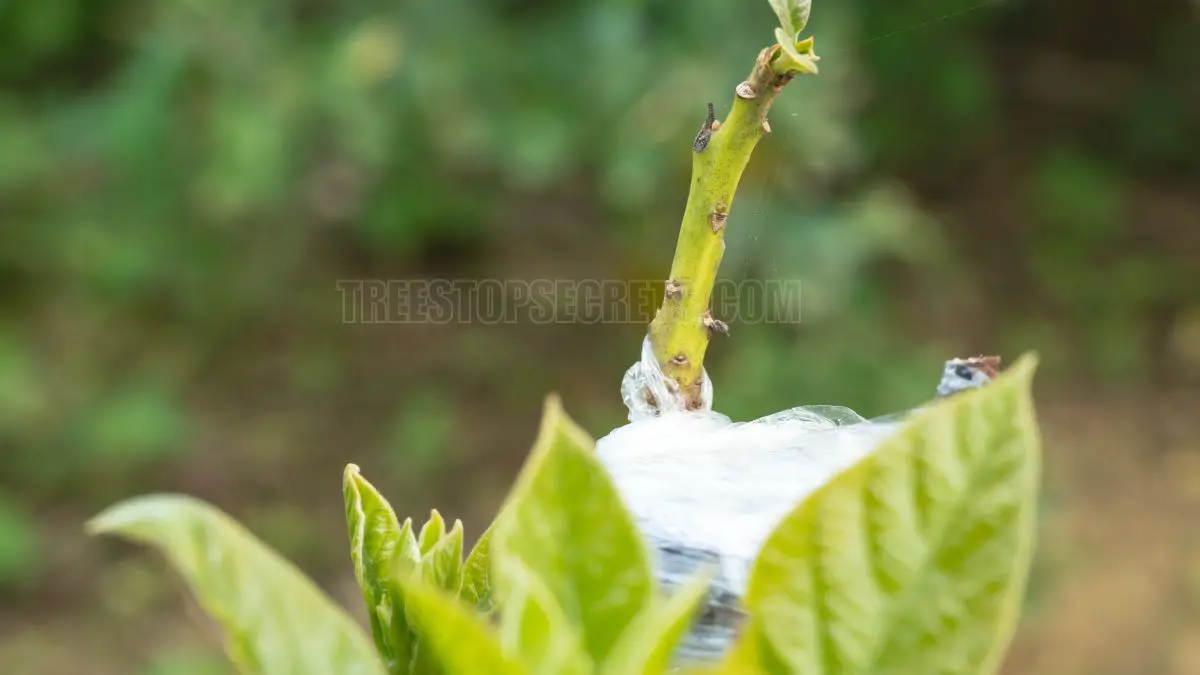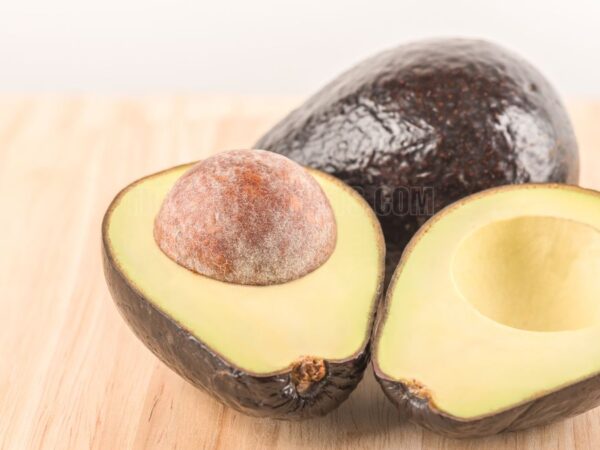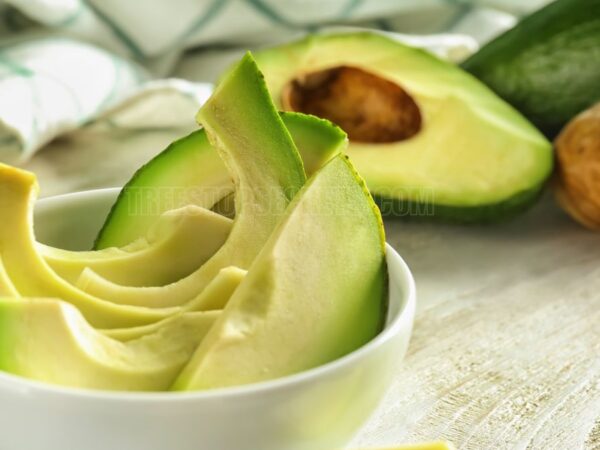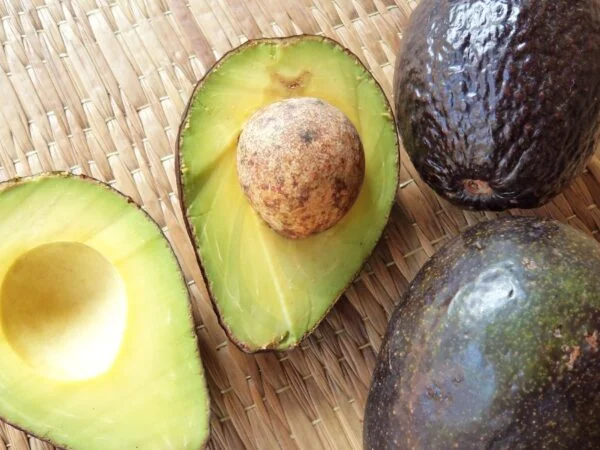Ever wondered how the delicious avocados you love make their way to your table? Growing an avocado tree is an exciting process that begins with a seed and develops into a flourishing plant. Whether you’re planning to grow an avocado indoors or in your garden, understanding how these trees grow is essential to nurturing them. In this article, we’ll explore everything you need to know about how avocados grow, including practical tips for cultivating your very own tree at home.
Avocados grow from a seed, which can be easily started by suspending it in water until it sprouts. The tree thrives in warm climates, requiring plenty of sunlight and well-drained soil. Avocado trees grow both indoors and outdoors, depending on the climate. The growth process can take anywhere from 5 to 13 years before it produces fruit, but the wait is worth it for that first homegrown avocado. Proper watering, soil management, and care are critical to ensuring a healthy tree and successful fruit production.
Growing your own avocado tree not only adds a touch of greenery to your space but also offers the rewarding experience of harvesting your very own fruit. Imagine making guacamole or a fresh avocado toast with homegrown avocados! Whether you’re a seasoned gardener or new to growing plants, nurturing an avocado tree can be a fun and educational project. Keep reading to discover helpful tips on how to care for your avocado tree and ensure it thrives.
Watching Avocados Grow
Growing avocados is a pretty cool process, filled with several stages from seed to delicious fruit. Let's dive into the key phases of this journey!
Avocado's Lifecycle
Avocado seeds go through four main stages:
- Seedling Stage: First, you partially dunk the avocado seed in water. This kickstarts the roots. It takes around 6 to 12 weeks before you see the first leaves (Medium).
- Vegetative Stage: This can drag on for up to two years. Here, the tree focuses on sprouting leaves and fortifying its trunk, which sets the stage for future fruits.
- Reproductive Stage: Next up, the tree blooms and gets ready to bear fruit. It's crucial to make sure pollination happens during this stage.
- Mature Stage: Finally, your tree hits maturity, and you can start picking those juicy avocados.
From Bud to Yummy Fruit
Here's a cheat sheet on the avocado journey from a tiny bud to a snack-ready fruit:
| Stage | What’s Happening |
|---|---|
| A - Dormant Bud | The bud is taking a nap. |
| B - Swollen Bud | The bud starts to plump up. |
| C - Inflorescence | Flowers start showing up. |
| D - Tender Fruit | Tiny fruits begin to appear. |
As your tree travels from a sleepy bud to producing tasty avocados, keeping an eye on each stage helps you to know what’s next. This way, you’re better equipped to care for your avocado tree and enjoy your harvest (Reyes Gutierrez).
By breaking down these stages, you get a clearer picture of the avocado's growth - making your growing adventure more rewarding. So get those hands dirty, and keep an eye out for those yummy fruits!
Growing Avocados: The Basics
If you want juicy, green avocados hanging off trees in your backyard, you gotta get the conditions just right. Temperature, soil, and a sprinkle of green thumb magic can turn you into an avocado pro. Here’s what you need to get those creamy fruits blossoming.
Climate and Weather: Keeping it Warm and Cozy
Avocados love basking in the sun, just like us on a beach vacation. They thrive in warm, semi-humid climates, like those in tropical and Mediterranean spots. Their sweet spot for thriving? USDA hardiness zones 9 through 11. With some extra care, you can even push it to Zone 8. Here’s a quick breakdown of what they like:
| Requirement | Ideal Condition |
|---|---|
| Temperature | Consistently warm |
| Rainfall | 40-50 inches annually |
| USDA Hardiness Zones | 9 to 11, Zone 8 with TLC |
| Humidity | 60% to 80% |
So basically, if it’s warm and you can wear shorts most of the year, your avocado tree will probably be happy.
Soil Love: Feeding the Green Babies
These green gems aren’t too fussy but give them some cozy, well-drained soil and they’ll reward you. Ideal soil temps should be between 68°F and 77°F. Think loose soil, lots of drainage, and a pH level between 5 and 7, with a sweet spot around 6-7. Organic matter in the soil is a big help, too. It keeps the roots happy, holds moisture, and adds those critical nutrients like nitrogen, phosphorus, and potassium—basically your plant’s daily vitamins. Here’s the soil lowdown:
| Soil Characteristic | Ideal Condition |
|---|---|
| Soil pH | 5 to 7 (best at 6-7) |
| Organic Matter | High, always |
| Drainage | Well-draining |
| Moisture | Balanced by organic matter |
Keep these tips in mind and you'll be eating guacamole straight from your garden in no time. So, grab your gardening gloves and get going!
How to Grow and Care for Your Own Avocado Trees
Learning to grow avocados has been quite the adventure. Deciding whether to start from a seed or a sapling played a big role in when I'd finally see those delicious fruits. Here are some insights to help you make it just a bit easier.
Seed or Sapling? That’s the Question.
One of my first dilemmas was whether to kick things off with a seed or go the easier route with a sapling from the nursery. Here's what I found out after some digging:
| Method | Time to Fruit | What's Good & What's Meh |
|---|---|---|
| Seed | 3-4 years | Smaller fruits, may drop early — a bit of a wild card |
| Sapling | 3-5 years | More reliable with fruit — faster gratification |
Starting with a seed usually means a three to four-year wait before you even think about guac. They can also be hit or miss with small fruits that quit the tree early. Meanwhile, buying a sapling could get you fruit in three to five years, especially with varieties like Hass or Fuerte, which don't keep you waiting forever.
How to Keep Your Avocado Happy
Proper care is the secret sauce to vibrant avocado trees. Here's what I've been doing to keep mine on track: 1. Watering: Water regularly but avoid drowning it. These trees like their soil moist but they can’t stand soggy feet. Well-draining soil is a must. 2. Sunlight: Your avocado tree needs its sunny days. Plant it where it can soak up at least 6-8 hours of direct sunlight each day. No sunlight = no avocados. 3. Soil: Give it some good dirt. The right mix of sandy loam and organic stuff promotes healthy roots. 4. Fertilization: During spring and summer, feed your tree a balanced fertilizer with nitrogen, phosphorus, and potassium. Think of it like giving your tree a healthy diet. 5. Pruning: A little prune here and there encourages your tree to branch out and breathe better. This helps keep diseases at bay. 6. Pests: Keep an eye out for uninvited guests like mites and aphids. Organic pest control methods work wonders. Following these steps has really made a difference in my avocado tree's health and productivity. If my trees could talk, they'd thank me by now. So create the right environment, give them some love, and soon you’ll be enjoying your own home-grown, creamy avocados!
Growing Avocado Seedlings
Growing avocado seedlings isn't just about planting a seed and waiting—it’s an adventure with stages that turn a little pit into a fruit-giving tree. Buckle up, green thumbs!
Germination and Growth Stages
Got an avocado seed? Perfect. Let’s break down what happens next.
| Stage | What’s Happening? |
|---|---|
| Seedling | The seed's chillin' halfway in water, not too high, not too low |
| Root Development | The taproot makes an appearance, laying the groundwork (literally) |
| Sprouting | A lil' shoot pops out with its first leaves, like a tiny green baby |
| Transplanting | Once it’s got some size, move it to a pot or the great outdoors |
So, you’ll see this seed morphing into a healthy plant within 6-12 weeks. Easy enough, right? Well, sort of. The magic really kicks off in the vegetative stage. This means lots of leafy growth, maybe for up to two years, before you get any flowers and those tasty avocados (Medium).
Timing for Fruit Production
Patience, grasshopper. Remember, great things take time. If you start from a seed, expect nothing but waiting for about 3-4 years before you finally see fruit. Feel like cheating a bit? Get a nursery sapling—it’s quicker but could still keep you waiting for 13 years or more. That’s a long game, my friend. Some varieties like Hass and Fuerte might give you a break and produce fruit sooner—think of it as the VIP ticket to the avocado show, potentially yielding fruit in 3-4 years under pampered conditions (EOS). And that tree? It hits peak performance between 10 and 20 years old, dropping delicious avocados like there’s no tomorrow. So, whether you're planting seeds or buying saplings, expect a waiting game, but oh, the sweet reward of home-grown avocados is worth every minute. Ready to get started? Grab that seed and let’s go on this green adventure together!
Avocado Harvesting and Seasons
Harvesting avocados is pretty thrilling for all of us who grow them. Knowing the right time to pick and handling them properly makes sure we get that perfect taste.
Maturity and Ripeness
So, avocado trees take about three to four years to start giving us fruit if we plant them from a young tree. From seeds, it might take a bit longer. Most types of avocado will be ready in about three to four years after a period of just growing leaves, which can last up to two years before they start flowering. Here's a quick reference for avocado growth:
| Stage | Duration |
|---|---|
| Leafy Growth | Up to 2 years |
| First Fruit | 3 to 4 years from sapling |
| Best Yield | Ages 10 to 20 years |
Certain types like Pinkerton and GEM can surprise us by bearing fruit in less than two years if grown from a five-gallon container.
Post-Harvest Handling Techniques
When the avocados are just right, it's time to pick them. I find the best flavor comes when they are slightly firm but with some give when gently pressed. Here's what I follow to handle them right:
- No Shaking: Gently twist the avocado off to avoid hurting the stem or bruising.
- Clean Tools: Use clean pruning shears or scissors to cut them from the branch.
- Room Temperature Ripening: Let them ripen at room temp. This usually takes a few days to a week.
- Fridge for Ripened Fruits: Once they’re ripe, pop them into the fridge to keep them fresh longer.
Sticking to these techniques helps me enjoy avocados at their peak while making sure they stay fresh longer. Knowing when to harvest and how to handle them makes all the difference in enjoying homegrown avocados.
Avocado Farming Woes
Growing avocados can be really fun, but it does come with its fair share of headaches. If you’re diving into this green-gold quest, brace yourself for some serious issues with diseases, pests, and keeping your farm eco-friendly.
Battling Tiny Enemies
Avocado trees are like magnets for nasty bugs and diseases. Spotting these troublemakers early can save your trees (and your sanity). Here are some common woes you’ll face:
| Trouble | What You’ll See | What It Does |
|---|---|---|
| Anthracnose | Wet spots on leaves, sunken fruit lesions | Messes with leaves, stems, fruits, cuts yield |
| Phytophthora Root Rot | Wilting, growth decline, rotting fruit | Hits young and mature trees, can be fatal |
| Avocado Sunblotch Viroid (ASBVd) | Yellow-blistered leaves, yield drop, death | No cure, devastates production |
| Armillaria Root Rot | Yellow leaves, wilting, trunk cankers | Spreads fast, can kill trees, stunts growth |
| Verticillium Wilt | Clogs tree’s veins, slow death | Common in CA, spreads via tools or soil |
About a third of U.S. avocado trees get sick, so keep your eyes peeled. Check your trees regularly, and take good care of them to keep these villains at bay.
Going Green to Stay Green
When you’re learning how to grow avocados, don’t forget: Keeping things green means staying eco-friendly. There are several tricks to do this right:
- Crop Rotation: Planting different stuff helps the soil stay healthy and keeps diseases away.
- Companion Planting: Pairing certain plants with your avocados can scare off pests and boost growth.
- Integrated Pest Management (IPM): Use a mix of good bugs, traps, and selective spraying to control pests without harming the planet.
- Water Conservation: Drip irrigation saves water and ensures your trees get enough moisture.
- Organic Practices: Using natural fertilizers and amendments keeps the soil rich and avoids nasty chemicals.
Balancing pest control and being eco-friendly is key to growing happy avocado trees. By sticking to these methods, not only will you help the environment, but you’ll also reap the delicious rewards of your crop.
Final Thoughts on How Avocados Grow
Understanding how avocados grow is key to successfully cultivating your own tree. With the right conditions and care, you can enjoy the satisfaction of harvesting your very own avocados at home. Whether grown indoors or outdoors, following these tips will help your tree thrive and reward you with fresh, delicious fruit. Patience and proper maintenance will go a long way in making your avocado-growing journey a fruitful one!
FAQs about "How Does Avocados Grow"
Q: How long does it take for an avocado tree to bear fruit? A: Avocado trees take between 5 to 13 years to bear fruit, depending on whether it’s grown from a seed or grafted. If you’re growing from a seed, expect a longer wait compared to purchasing a grafted tree from a nursery, which can bear fruit in as little as 3-4 years. Q: Can I grow an avocado tree indoors? A: Yes, you can grow an avocado tree indoors as long as it receives ample sunlight. It’s best to place the tree in a sunny spot, preferably near a window that gets at least 6 hours of direct sunlight daily. Indoor avocado trees may not grow as large, but they can still thrive and bear fruit with proper care. Q: What type of soil is best for growing avocados? A: Avocado trees prefer well-drained, loose soil with a pH level between 6 and 6.5. They do not tolerate waterlogged conditions, so ensure your soil is not too compact and drains efficiently to prevent root rot. Q: How often should I water my avocado tree? A: Avocado trees require regular watering but dislike being waterlogged. Water your tree when the top 2 inches of soil feel dry to the touch. In warmer climates, you might need to water it more frequently, but in cooler weather, reduce watering to prevent soggy soil. Q: Can I grow an avocado tree from a store-bought avocado? A: Yes, you can grow an avocado tree from the seed of a store-bought avocado. Remove the seed, clean it, and suspend it in water using toothpicks until it sprouts. Once roots and a stem appear, you can transfer it to soil.
Image Source: Paid image from CANVA





